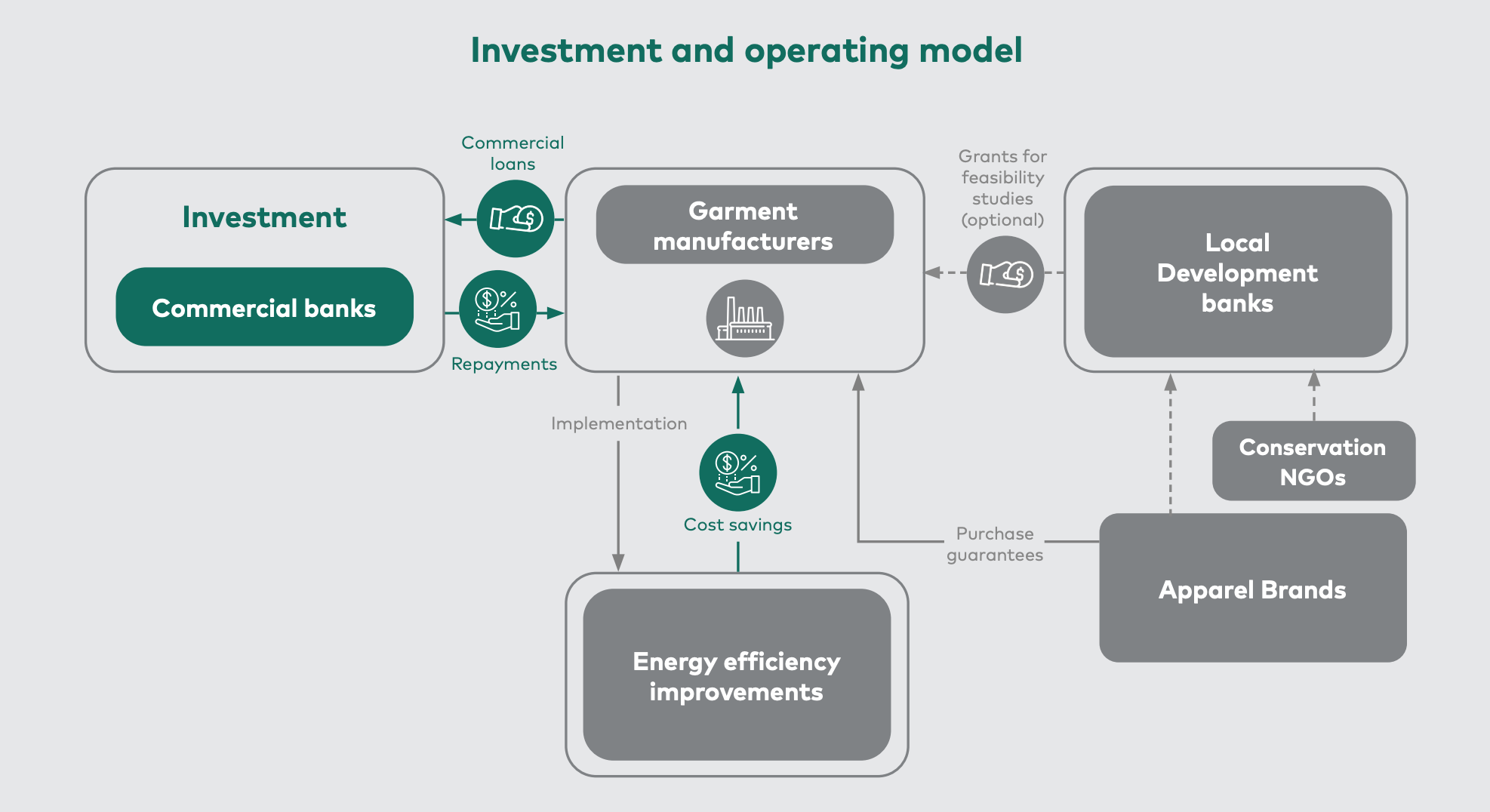Guarantee-backed lending for clean textile production
In a nutshell
The garment industry uses a vast amount of water and chemicals throughout the dyeing and finishing processes.
This blueprint, piloted in Turkey, contributes to the conservation and enhancement of freshwater and biodiversity in textile-producing regions. It provides purchase guarantees from clothing brands to garment manufacturers, enabling them to implement energy efficiency measures with both environmental and financial benefits.
Investment and operating model
The model relies on the production of garments with lower water and chemical use and their sales to apparel brands through purchase guarantees. Once those purchase agreements have been secured, garment factories can access commercial loans to fund efficiency improvements in their production processes. Those improvements increase their environmental performance and profitability, allowing them to pay back the loans with interest.
Loans considered in this model range from USD 90,000-200,000, with a typical maturity of 48 months. The use of guaranteed purchase orders allows for the use of commercial rather than concessional loans, making the model more attractive to the banking sector as well as increasing scalability.
Complementary grants can be provided by apparel brands or NGOs to conduct feasibility studies to assess the economic and environmental viability of the improvements considered.
Impact measurement
Key outcome indicators include:
- Improved water quality
- Increased populations of key species
- Improved profitability for garment manufacturing companies
- Strengthened job security across the industry
Scalability and replication
The threats to nature posed by the garment industry are widespread, and the potential for replication of this model is high. WWF is currently working on replicating this model in the textile and apparel industry in India, Pakistan, Myanmar and China. This model could also be replicated in other industries and contexts characterized by wastewater discharge into river basins and the presence of (apparel) brands willing to enter into purchase agreements.
